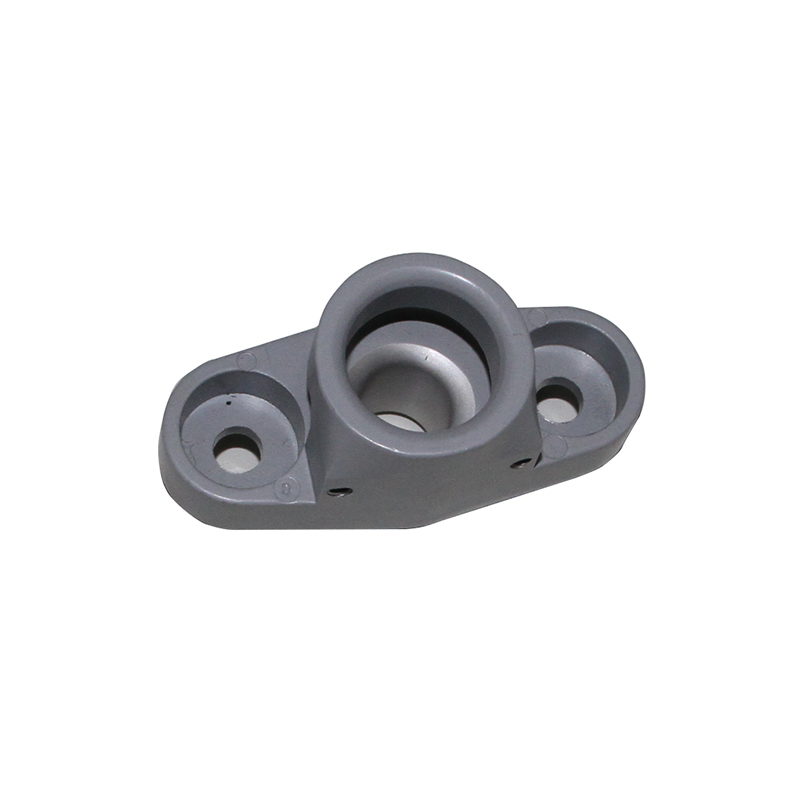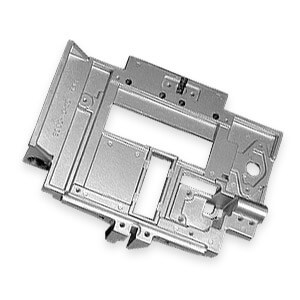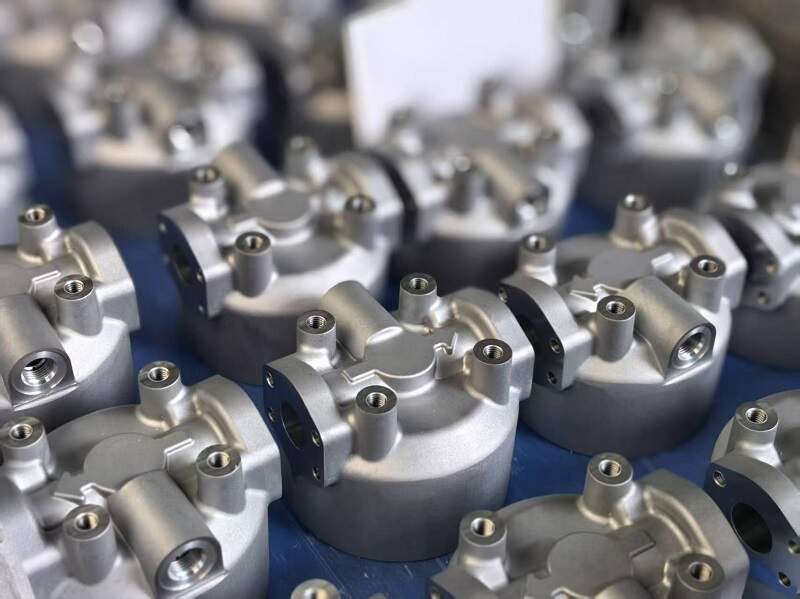How an Aluminum Casting Company supports innovation in production
Checking Out the Innovative Processes Behind Modern Aluminum Shop Procedures
Modern light weight aluminum factory procedures are undertaking substantial improvement. Automation and AI are reshaping production methods, boosting both efficiency and precision. The assimilation of 3D printing is improving mold and mildew production, while sustainability practices are ending up being extra crucial. Each of these improvements plays an essential role in redefining the market. The effects of these adjustments extend past plain production performance. What difficulties and possibilities lie ahead for light weight aluminum shops in this developing landscape?
The Role of Automation in Light Weight Aluminum Foundries

Furthermore, automation adds to enhanced security requirements within the factory environment. By moving hazardous jobs to makers, human employees can concentrate on supervisory roles and quality assurance, minimizing the risk of mishaps. On top of that, information analytics obtained from automated processes give beneficial insights right into functional performance, leading to far better decision-making and constant enhancement. As the demand for light weight aluminum products grows, the adoption of automation innovations will likely increase, even more transforming the landscape of aluminum factory operations.
Advancements in Casting Technologies
Recent innovations in casting modern technologies are changing aluminum factory procedures. Advancements such as 3D printing integration, advanced alloy solutions, and automated process optimization are improving performance and product high quality. These growths are critical in fulfilling the progressing demands of the sector.
3D Printing Assimilation
Integrating 3D printing innovation into aluminum shop operations has reinvented traditional casting approaches, enhancing both effectiveness and precision. This ingenious method permits for the quick manufacturing of complicated mold and mildews and cores, substantially minimizing preparations and product waste. By utilizing additive manufacturing, shops can develop intricate geometries that were previously difficult or impossible to achieve with standard strategies. The adaptability of 3D printing also enables quick design adjustments, fostering a more nimble production procedure. Additionally, this integration sustains the use of lightweight frameworks, which is significantly important in sectors such as vehicle and aerospace. As aluminum shops remain to adopt 3D printing, they place themselves at the center of technological development, driving enhancements in product top quality and functional capacities.
Advanced Alloy Formulations
The development of advanced alloy formulas has considerably improved casting technologies in aluminum shop operations. These formulations incorporate numerous components, such as silicon, copper, and magnesium, to enhance mechanical residential properties and thermal resistance. By customizing the make-up of aluminum alloys, suppliers can accomplish particular efficiency qualities that satisfy the demands of varied applications, from vehicle parts to aerospace frameworks. The use of advanced alloys likewise adds to decreased weight and increased strength, which are critical elements in contemporary design. Furthermore, developments in alloy growth allow much better fluidness throughout casting, causing improved surface area finishes and decreased defects. On the whole, advanced alloy formulations stand for a considerable jump ahead, placing light weight aluminum factories to fulfill the progressing demands of various sectors efficiently.
Automated Process Optimization
Advancements in casting modern technologies have led the way for automatic process improvement in aluminum shop operations. By incorporating innovative software program and real-time information analytics, shops can now simplify production procedures and enhance quality assurance. Automated systems keep track of variables such as temperature level, air conditioning, and stress prices, enabling immediate modifications that reduce issues and waste. Additionally, device discovering formulas examine historical efficiency information to forecast excellent setups, thereby enhancing efficiency and reducing cycle times. Robotics also play a considerable duty, managing repetitive tasks that improve safety and security and precision. Overall, these technologies not only drive functional performance yet additionally make it possible for factories to satisfy the expanding need for premium aluminum components in different markets.
Smart Manufacturing and Sector 4.0 Assimilation
The combination of Smart Manufacturing and Industry 4.0 within light weight aluminum factories is changing functional efficiency. By leveraging IoT technologies, automation, and robotics, factories can optimize manufacturing processes and lower downtime. Furthermore, data analytics supplies critical understandings that enhance decision-making and drive constant improvement.
IoT in Factory Operations
As producers significantly embrace the Internet of Things (IoT), factory procedures are experiencing a transformative shift towards clever production and Market 4.0 combination. Aluminum Casting Company. IoT innovations enable real-time data collection and evaluation, improving decision-making procedures and functional efficiency. Sensing units and linked gadgets check devices performance, product usage, and ecological conditions, permitting aggressive maintenance and source optimization. This connection fosters an extra active manufacturing environment, where modifications can be made swiftly in feedback to market needs. Furthermore, IoT helps with boosted traceability and quality assurance, as information from the entire production cycle can be quickly accessed and evaluated. On the whole, the combination of IoT in factory procedures significantly enhances web link performance and drives technology in aluminum manufacturing processes
Automation and Robotics Assimilation
Automation and robotics integration is reinventing light weight aluminum factory procedures by enhancing efficiency and precision. This transformative technique enhances procedures such as molding, pouring, and completing, reducing human error and raising outcome consistency. By employing advanced robot systems, foundries can achieve higher manufacturing rates while preserving rigid top quality requirements. Automated systems additionally enable real-time tracking and adaptive control, permitting quick changes to production specifications. On top of that, the assimilation of robotics lessens labor expenses and minimizes safety and security threats connected with manual handling of molten steel. As shops accept wise manufacturing concepts integral in Sector 4.0, the harmony between automation and robotics strengthens their one-upmanship, paving the way for sustainable development and technology in the light weight aluminum spreading market.
Information Analytics for Effectiveness
Utilizing information analytics greatly improves efficiency within aluminum shop operations, aligning with wise production and Market 4.0 principles. By leveraging real-time information collection and analysis, foundries can keep track of manufacturing processes, predict equipment failings, and optimize source appropriation. This data-driven technique promotes insightful decision-making, making it possible for managers to recognize traffic jams and enhance workflow. In addition, predictive analytics equips factories to prepare for market needs, thereby lowering waste and guaranteeing prompt item shipment. Integration of data analytics with IoT gadgets boosts operational visibility, cultivating a proactive maintenance culture. Inevitably, applying these sophisticated logical techniques not only enhances efficiency but also drives advancement, positioning aluminum shops to fulfill the advancing demands of the industry while maintaining affordable sides in a rapidly changing landscape.
Sustainable Practices in Light Weight Aluminum Casting
While the aluminum spreading sector has actually traditionally dealt with environmental difficulties, lots of shops are now adopting lasting practices to mitigate their influence (Precision aluminum casting). A considerable focus has actually gotten on reusing light weight aluminum scrap, which not only decreases waste however likewise preserves energy compared to primary aluminum production. Ingenious melting innovations, such as induction furnaces, enhance power performance and reduced greenhouse gas exhausts
In addition, foundries are applying closed-loop water supply to lessen water usage and minimize thermal pollution. Making use of green binders in mold-making processes is getting traction, more lowering hazardous emissions.
In addition, some centers are spending in renewable resource resources to power operations, aligning with worldwide sustainability goals. By incorporating these techniques, the aluminum casting market is developing toward a more environmentally responsible future, Continued demonstrating that economic development can exist side-by-side with ecological stewardship - Aluminum Casting Company. These efforts mirror a dedication to sustainability and the value of environmental accountability in manufacturing
Top Quality Control Innovations
As the aluminum casting industry advances towards sustainability, the value of quality assurance technologies ends up being significantly obvious. Modern light weight aluminum foundries are embracing innovative innovations to boost their quality control procedures. Methods such as real-time surveillance and data analytics permit makers to spot incongruities and flaws early in the manufacturing cycle. Executing automated inspection systems equipped with device discovering algorithms guarantees that products meet strict top quality requirements while decreasing human error.
The integration of non-destructive testing methods, such as ultrasonic and radiographic examinations, supplies deeper understandings into the integrity of castings without harming the material. These advancements not just boost item dependability however additionally lower waste, straightening with sustainability goals. Additionally, the adoption of standard top quality structures aids simplify operations throughout various shops, assuring uniformity in outcome. Collectively, these improvements are reshaping high quality control, promoting a culture of quality within the aluminum spreading market.
Future Fads in Light Weight Aluminum Factory Operations
What developments exist in advance for light weight aluminum foundry procedures? The future of aluminum foundries is positioned for makeover through innovations in automation, artificial intelligence, Website and lasting methods. The integration of robotics and automated systems is anticipated to improve efficiency and accuracy in the casting processes, lowering human error and labor prices. Additionally, AI-driven analytics will certainly make it possible for real-time monitoring and anticipating maintenance, enhancing operational performance and lessening downtime.
Sustainability remains a focal factor, with factories increasingly adopting environment-friendly methods, such as using recycled light weight aluminum and developing low-emission melting modern technologies. Advancements in 3D printing are likewise expected to transform mold-making, enabling complicated geometries and decreased material waste. As the market welcomes digitalization, data-driven decision-making will come to be pivotal, making it possible for shops to react swiftly to market demands. Jointly, these fads assure to redefine aluminum factory procedures, making them more reliable, sustainable, and adaptable to future difficulties.

Frequently Asked Concerns
What Security Measures Are Executed in Light Weight Aluminum Foundry Workflow?
Aluminum foundry operations implement different precaution, including individual safety devices, air flow systems to manage fumes, routine safety training, emergency situation feedback strategies, and rigid tracking of temperature and tools to avoid accidents and guarantee employee safety and security.
Just How Do Shops Handle Workforce Educating for New Technologies?

What Products Are Generally Recycled in Aluminum Foundries?
Light weight aluminum factories typically recycle scrap light weight aluminum, including post-consumer products like beverage canisters, auto parts, and construction products. This reusing procedure reduces waste and conserves resources, adding to an extra lasting light weight aluminum production sector.
Exactly How Does Light Weight Aluminum Casting Influence the Environment?
Light weight aluminum casting impacts the atmosphere via energy-intensive processes, greenhouse gas exhausts, and possible regional contamination. Innovations in recycling and sustainable methods can alleviate these impacts, promoting an extra environment-friendly approach to light weight aluminum manufacturing.
What Are the Regular Lead Times for Light Weight Aluminum Casting Projects?
Common lead times for light weight aluminum casting projects differ significantly, typically varying from two to 6 weeks. Elements influencing these timelines consist of complexity, order size, and material schedule, impacting overall manufacturing schedules in foundry operations.
Automation increasingly plays a necessary function in aluminum shops, boosting efficiency and precision in the production process. Developments in casting technologies have actually led the method for automated procedure improvement in light weight aluminum shop procedures. Utilizing information analytics greatly improves efficiency within aluminum foundry procedures, straightening with wise manufacturing and Market 4.0 principles. A significant focus has actually been on recycling aluminum scrap, which not just reduces waste yet likewise conserves power contrasted to main aluminum manufacturing. Aluminum factories commonly reuse scrap aluminum, including post-consumer products like drink cans, automobile components, and building and construction materials.